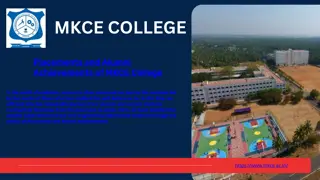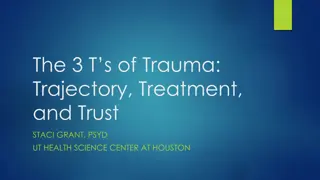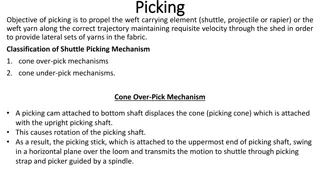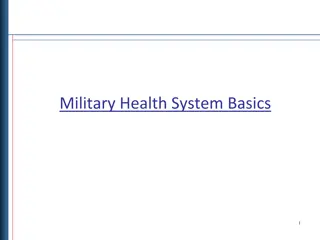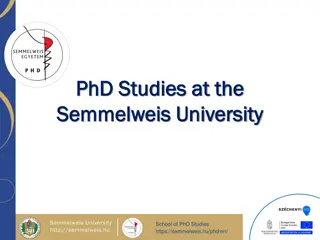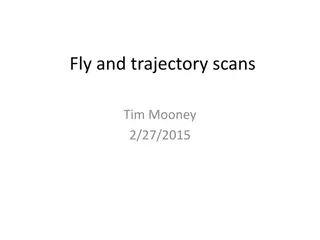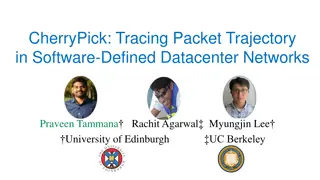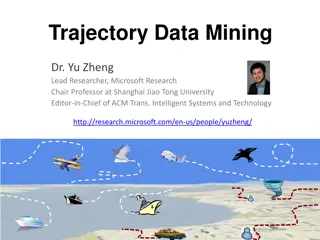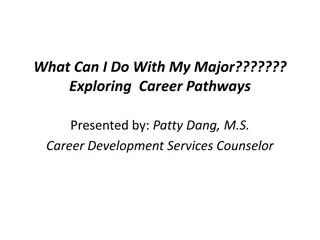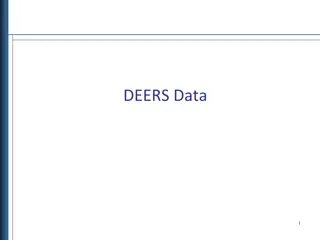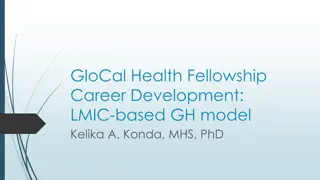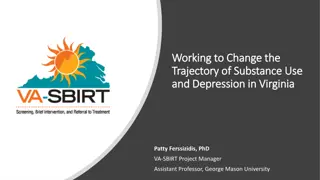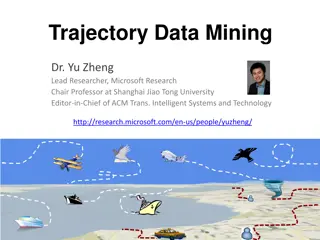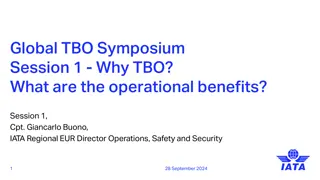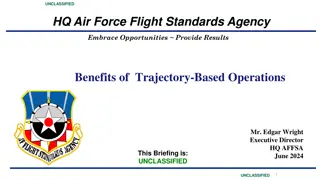Kelika A. Konda, PhD, MHS - Career Trajectory and Achievements
Dr. Kelika A. Konda, an Associate Professor at UCLA and Associate Researcher at UPCH, shares her career trajectory from obtaining a BA in environmental health to pursuing an MHS and PhD. She highlights her experiences with Peace Corps, Johns Hopkins, NIH funding, and post-doctoral work in global health, showcasing her dedication and success in the field.
Download Presentation

Please find below an Image/Link to download the presentation.
The content on the website is provided AS IS for your information and personal use only. It may not be sold, licensed, or shared on other websites without obtaining consent from the author. Download presentation by click this link. If you encounter any issues during the download, it is possible that the publisher has removed the file from their server.
E N D
Presentation Transcript
GH Career Trajectory Kelika A. Konda, PhD, MHS Associate Professor, UCLA Associate Researcher, UPCH
Disclosures Dr. Konda is a faculty member of the University of California, Los Angeles Dr. Konda is a Associate Researcher at Universidad Peruana Cayetano Heredia In the past 12 months, Dr. Konda has received: Salary from Universidad Peruana Cayetano Heredia and University of California, Los Angeles kkonda@mednet.ucla.edu kelikakonda@gmail.com kelika.konda@upch.pe
Pre-grad BA in major environmental health and minor political science In Peru your career is generally defined by your undergraduate major, people are always astounded that I didn t study medicine I studied Spanish from middle school onwards, but really became fluent as a Peace corps volunteer in the Dominican Republic Fluency helps, the more languages the better https://www.peacecorps.gov/ (you can do peace corps at any age)
MHS After Peace Corps I went to Hopkins for my masters in Social and Behavioral Interventions in International Health Then did my thesis research in Peru with the same research group I work with today This is rare, most masters students don t stick with the same research group for the next 15 years I was lucky to find a study that had funding for a research assistant at UCLA where I could work in Peru
PhD funding After working for 2 years as a research assistant, I went back to Hopkins for my PhD, now in ID EPI I applied for and received an F31 to fund my PhD dissertation https://researchtraining.nih.gov/programs/fellowships/f31 Stipend & educational funding, not much, but a good first foray into the world of NIH grants All of you, pre- or post-doc already have the experience of receiving an NIH- funded grant, which will help you going forward The NIH likes to see researchers who have gone through their system, they recognize the steps and sometimes reward those who follow them
Post-Doc in Global Health I was funded by a T32 grant for a 3-year post-doc https://researchtraining.nih.gov/programs/training-grants/t32 During the post-doc I was able to work with multiple researchers on a variety of projects that led to funding that I continue to receive An R34 Project that is now an R01 An R01 that led to 2 additional R01s I was also able to apply for a K01 award, which helped me to get a faculty appointment at UCLA And I applied and received NIH student loan forgiveness very helpful! https://www.lrp.nih.gov/
GloCal & my K01 I did GloCal in 2013, the same year as the first year of my K01 Both funded me to study gay couples in Peru slightly different research questions, but the work was complementary Both provide mentorship and also focused research time, particularly the K01 which gives you a 5 year breather to focus and work https://researchtraining.nih.gov/programs/career-development There are multiple types of K awards
NIH Grants Part of my exposure from my time as a research assistant onwards was participating in NIH grant writing Starting out just helping with literature reviews, references, and the supporting documents (Budget justification, equipment, facilities and resources, etc etc) I m still not a wonderful grant writer but this experience has helped me tremendously
Branch out from the NIH I have also worked on WHO, UNAIDS, UNITAID, local government, & industry funded projects All funders are different, the NIH does not have the monopoly on good science, especially internationally
Other consultancies: deciding when to say no Other opportunities arise and you have to decide when to say yes and when to say no Time and money are part of the equation But also: exposure, new working groups, new research areas, experiences or research questions
Career trajectory Academic with a twist I have an appointment at UCLA as an associate professor & am an associated investigator at UPCH Few US investigatores live outside of the US, most people who work in GH continue to live in the US There are downsides I will never have tenure
Creative ways to fund research projects and salary When someone writes to you out of the blue for a collaboration, pay attention, it could work really well Don t scoff at small money the tiny $5-10k seed grants can really help! Being funded 100% by the NIH is tough not just scientifically, but also the funding cycles of soft money To supplement: Clinicians = clinic time / Academics = class time Having parts of your salary linked to hard money, is helpful
GH course for undergrads at UCLA I m a PhD at the medical school, so teaching is not an option However, I worked to establish a month long summer course in GH for undergraduate students 2 courses: intro to GH & Diversities and Disparities in Peru
Other thoughts To the best of your ability, find colleagues you like and stick with them Research is all encompassing, if you don t like your work environment, the level of commitment needed to succeed will be hard to muster Figure out what work/life balance works for you and what that means for your resources you do not have to work 24/7 Your students and mentees often turn up in important positions later on treat them well, they are an asset not a liability
Thank you! Gracias!

 undefined
undefined



